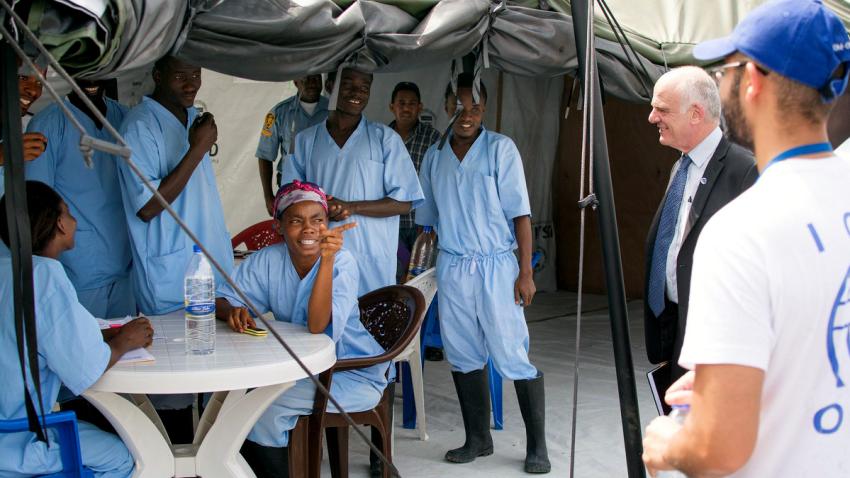Gestures of solidarity with healthcare staff, who are paying a heavy price in the fight against the COVID-19 pandemic, are multiplying in France and the Benelux countries. Calls for donations, offers of no-cost accommodations, meal deliveries, free parking, and gifts of every kind are heartening donors and recipients alike for what they signal: we are in this fight together.
As UN Secretary-General António Guterres said in his World Health Day message, “In these traumatic times, I say to all healthcare professionals: we are at your side and we are counting on you! You fill us with pride, you inspire us and we are indebted to you. Thank you for what you do, every day and everywhere, because your actions are changing the face of the world."
The World Health Organization chose 2020 to pay special tribute to nurses and midwives long before this crisis, and throughout France and Belgium thousands of individuals and companies responded by mobilizing to support them and other healthcare personnel.
Offers are multiplying to enable doctors and nurses who work tirelessly in hospitals to find a comfortable place to stay that is closer to where they are working. For many with families they want to protect, that is especially welcome.
Some doctors and nurses find baskets of food or prepared meals on their doorstep when they return from the hospital in the evening. Many French people who want to remain anonymous, as well as sports clubs and other groups, have responded to calls for donations from various foundations to support hospitals.
Airbnb is making 5,000 apartments available free of charge for care staff, an initiative with Frances’ Ministry of Housing.
Poppy, a platform for shared vehicles in Belgium, is making its 350 cars and 400 scooters available free of charge to medical professionals in the Brussels and Antwerp areas. Billy, a Brussels-based company, is distributing its electric bicycles free to "essential professions".
Decathlon, a sporting goods store, has withdrawn its "EasyBreath" diving masks from online sales to offer them free of charge to hospitals, which can use them as protective masks or modify them to connect to respirators.
After photos of the acid-soaked, damaged hands of nurses who use aggressive disinfectant liquids dozens of times a day went viral on Twitter and Instagram, several major French brands donated reparative creams to hospitals.
The French insurance company MAIF, which has banked savings of some 100 million Euros due to a decline in car crashes, is letting its policyholders choose whether to get that sum as a refund, or donate it to medical groups on COVID-19’s front lines.
The public car parks of the city of Paris are also open free of charge to healthcare personnel.
The French and Belgian governments announced bonuses for healthcare staff; France also plans a massive and overdue boost in its investment in the hospital sector.
In Belgium, a website lets volunteers offer their services to hospitals in Flanders. In Wallonia, free psychological consultations are open to people working in the aid and care sector.
The public response has not been completely positive. Some caregivers have been targeted with theft of protective equipment left in their vehicles or threats by fearful neighbors who want them to move. But the concrete acts of kindness and solidarity dwarf malicious behavior. They are an inspiring and pragmatic accompaniment to the evening ritual now followed by thousands: coming to the windows and doors to applaud those who continue to serve on the frontlines of COVID-19.




